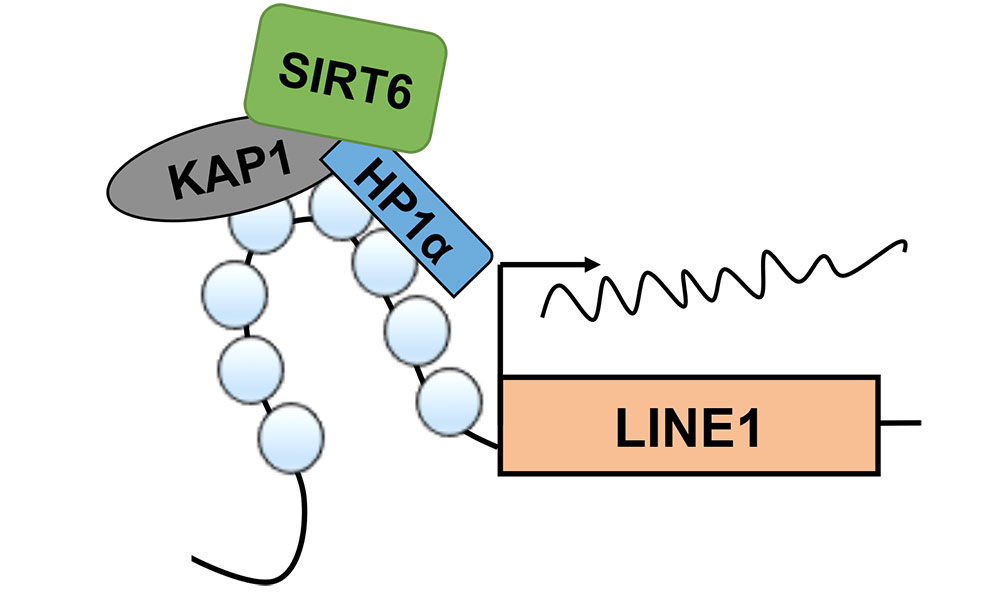
Parasitic DNA stops “jumping” when protein takes charge
Biology researchers Vera Gorbunova and Andrei Seluanov report that the “jumping genes” in mice become active as the mice age when a multi-function protein stops keeping them in check in order to take on another role. A protein called Sirt6 is needed to keep the jumping genes—technically known as retrotransposons—inactive.
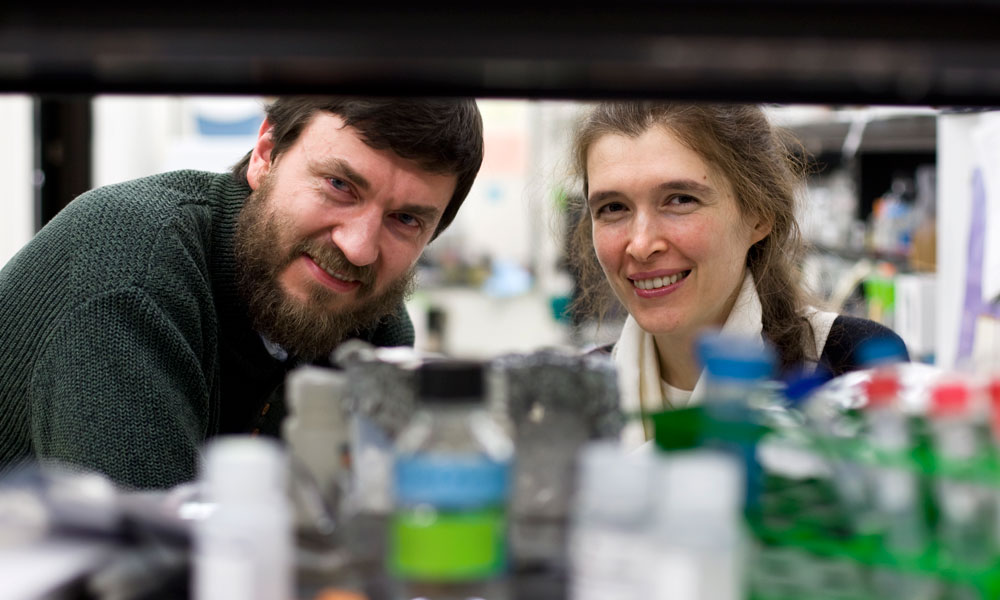
Less effective DNA repair process takes over as mice age, biologists find
Biologists Vera Gorbunova and Andei Seluanov have discovered one reason for the the increase in DNA damage as we age: the primary repair process begins to fail and is replaced by one that is less accurate.
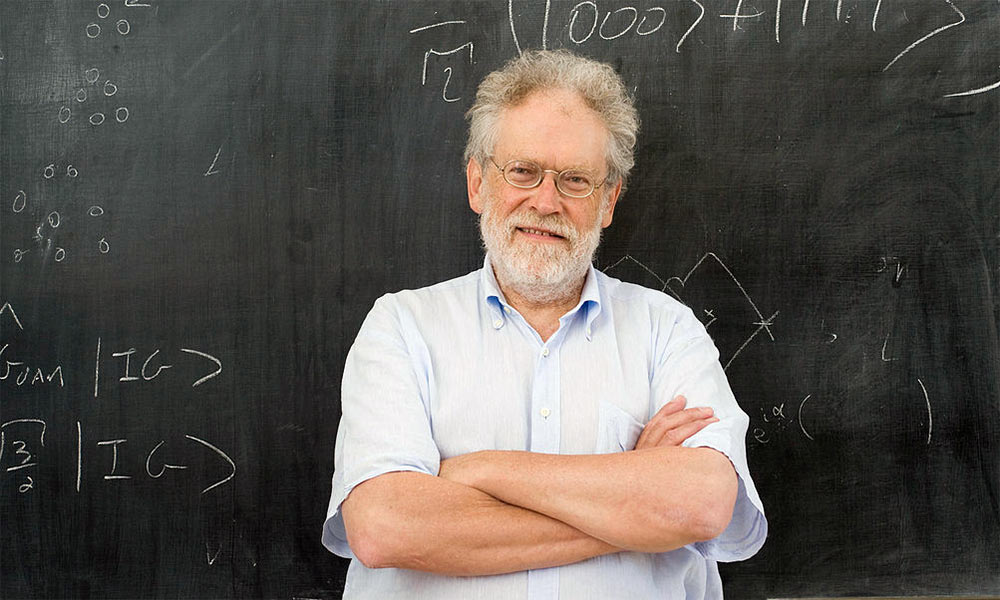
Lecture by world-renowned physicist brings quantum mechanics to the masses
Anton Zeilinger, one of the world’s leading experts in the field of quantum optics, will present a free, public lecture Tuesday at the University of Rochester. The talk is designed to convey the exciting frontiers of quantum mechanics to a general audience.
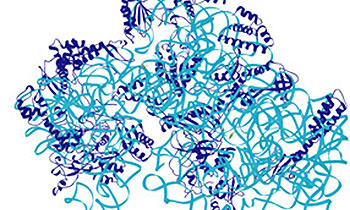
Targeting cells’ protein-making machinery may stop harmful bacteria
For the first time, the middle-steps in the process that creates the protein-making machinery of bacterial cells—called the ribosomes—has been isolated. A new study by biologist Gloria Culver suggests that blocking these pathways may help kill off drug-resistant bacteria.
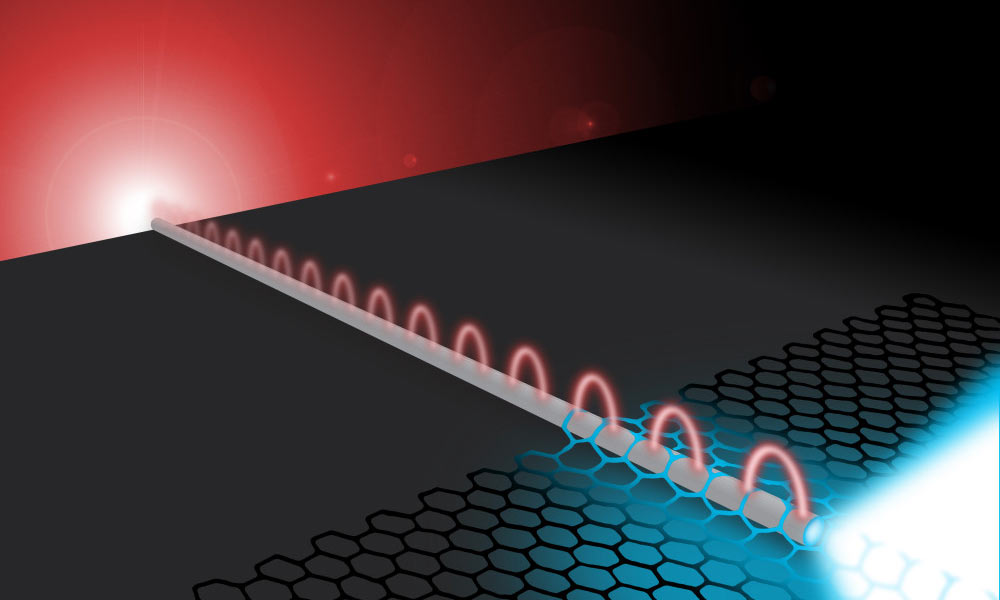
Researchers send electricity, light along same super-thin wire
A new combination of materials can efficiently guide electricity and light along the same tiny wire, a finding that could be a step towards building computer chips capable of transporting digital information at the speed of light.
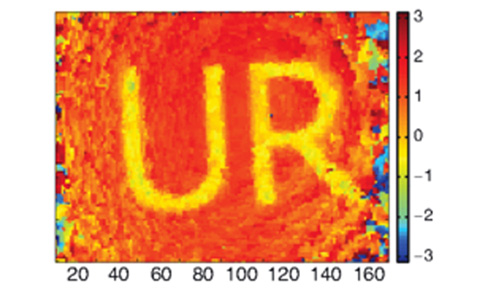
Doing more with less: New technique efficiently finds quantum wave functions
University researchers have introduced a new method, called compressive direct measurement, that allowed the team to reconstruct a quantum state at 90 percent fidelity using only a quarter of the measurements required by previous methods.
Duality principle is “safe and sound”: Researchers clear up apparent violation of quantum mechanics’ wave-particle duality
When scientists in Germany announced in 2012 an apparent violation of a fundamental law of quantum mechanics, The results were both “strange” and “incredible.” It took Robert Boyd and his colleagues nearly a year and a half to figure out what was going on.
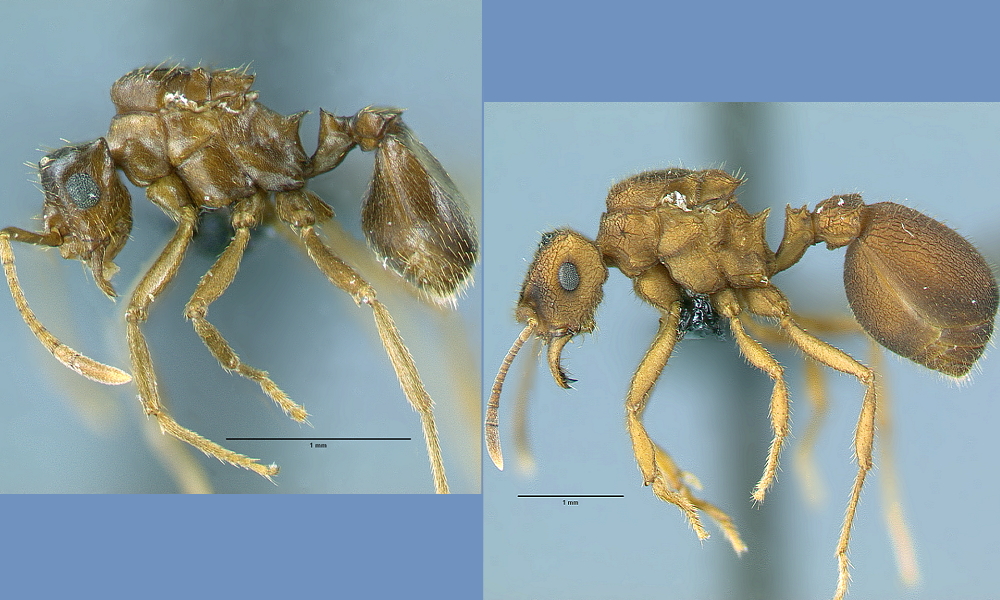
Alternate mechanism of species formation picks up support, thanks to a South American ant
A newly-discovered species of ant supports a controversial theory of species formation. “Most new species come about in geographic isolation,” said Christian Rabeling, assistant professor of biology at the University of Rochester. “We now have evidence that speciation can take place within a single colony.”
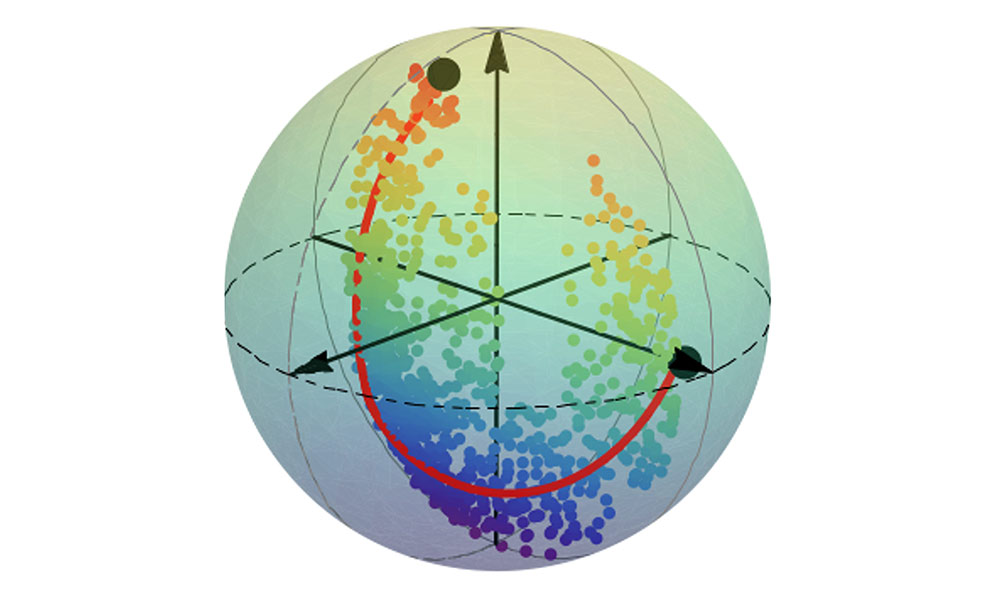
Mapping the optimal route between two quantum states
As a quantum state collapses, it will follow a path known as a quantum trajectory. In a new paper featured this week on the cover of Nature, scientists have shown that it is possible to track these quantum trajectories and compare them to a theory, recently developed by University of Rochester physicists, for predicting the most likely path a system will take.
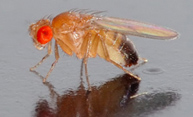
When temperatures drop, newly-discovered process helps fruit flies cope
Rochester biologist Michael Welte and his team made their discovery while studying the internal mechanisms of the egg cell of the fruit fly, known as Drosophila. What keeps the assembly line functioning—based on the new research—is a protein called Klar.
